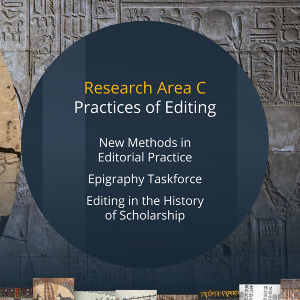Research projects in Research Area C
Here you can find an overview of all research projects and the corresponding job advertisements in Research Area C (Practices of Editing).

Here you can find an overview of all research projects and the corresponding job advertisements in Research Area C (Practices of Editing).
